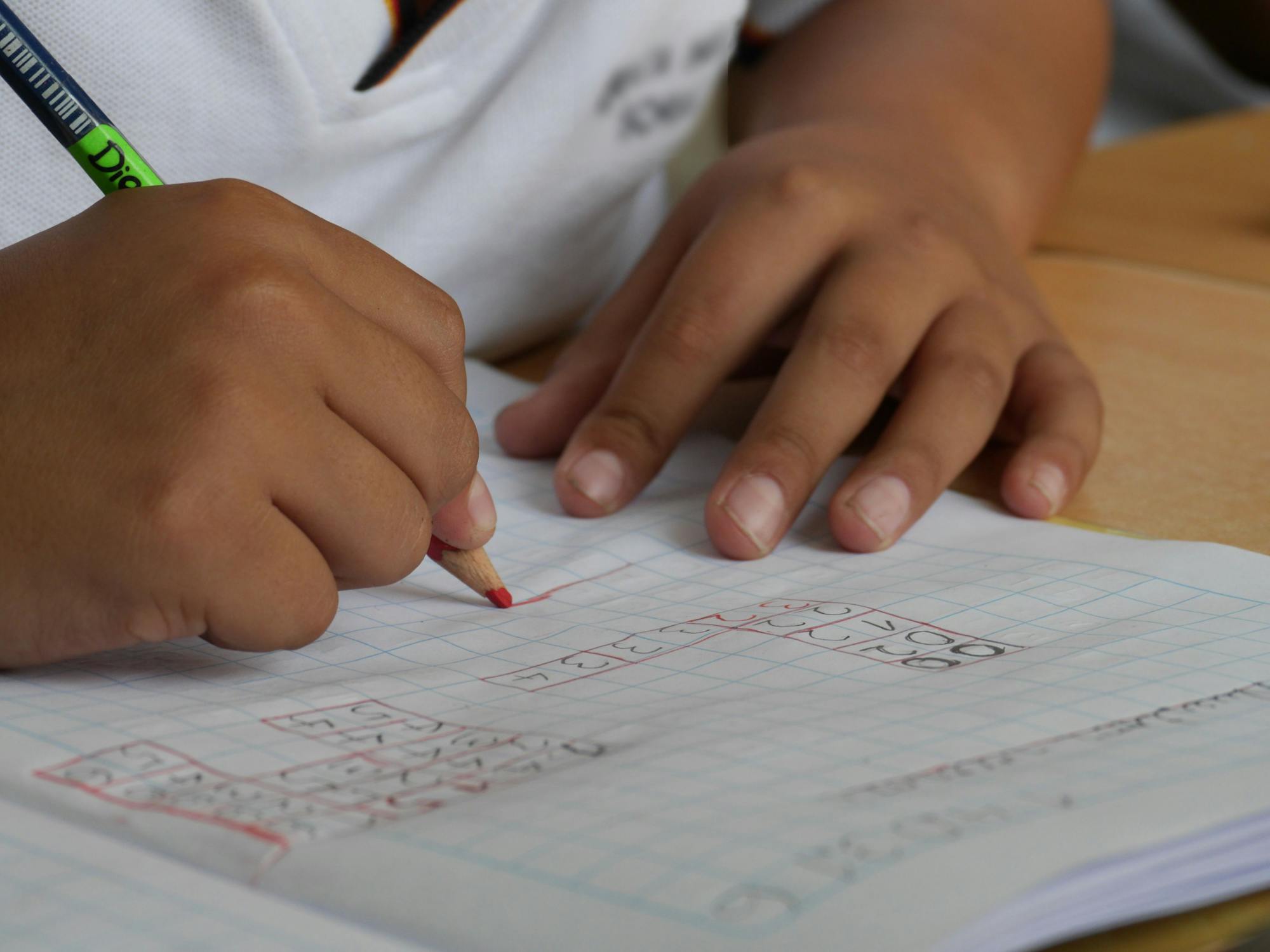Uncertainty over renewed efforts to revive Ajaokuta
The Ajaokuta Steel Company Limited (ASCL), once heralded as a beacon of industrialisation for Nigeria, now stands as a symbol of dashed hopes.
Despite federal government’s spending of over $10bn in the 45 years since its inception, the project remains uncompleted, casting a long shadow over the host community.
Our correspondents observe that takeholders are currently grappling with how to revive the steel giant, while the community endures the fallout of the project’s failure.
The economic vitality once promised by the steel plant has withered, leaving workers and residents in a state of uncertainty.
- How Southern Kaduna cultural festival is reviving lost bonds
- Inside life of Nigerian inmates awaiting trial
The dream
The discovery of significant iron ore reserves in Oshokoshoko, Itakpe, and Ajabanoko in 1973 sparked the drive to establish an iron and steel industry in Nigeria. This effort, according to our findings, gained momentum in the early 1960s, and culminated in the awarding of feasibility studies to British and later Soviet experts, eventually leading to the construction of the steel plant in Ajaokuta.
The establishment of the Nigerian Steel Development Authority in 1971 provided the strategic framework for this ambitious project.
By 1979, the Ajaokuta Steel Company Limited was incorporated under President Shehu Shagari’s administration, and the federal government acquired 24,000 hectares of ancestral land from 13 settlements in Ajaokuta to site the plant.
Despite reaching 98% completion by 1994, with 40 of 43 sub-plants operational, the steel plant’s progress came to a halt with the exit of Russian technical partners. The situation worsened in 2008 when an Indian concession company, which had briefly operated part of the plant, also pulled out due to contractual disputes.
The exit of the Indian technical partners sources say, marked the final straw that ended the operation of the steel plant.
But the federal government, obviously worried by the monumental losses, has begun making efforts to resuscitate the plant.
First was the visit by 23 Russian advance team and the subsequent signing of an agreement with the company that built the plant, Tyazhpromexport (TPE), and members of their consortium namely; Novostal M and Proforce Manufacturing Limited.
While the government continues to brainstorm on fixing the plant, experts have pointed out that the biggest issue facing the plant is an underlying defect in its geographical location which makes it not competitive for investors to recoup their gain.
They point out that beneficiation needed to undergo for the ore to be mined before usage is a bane in producing iron in the country.
The beneficiation is as a result of the iron ore deposits in Nigeria having less than 40 per cent of iron thus not suitable for production of steel.
Nigeria, the experts posit, has to import high grade iron ore from other African countries to blend with the local iron which necessitated the rail line from Warri to Itakpe, a port in Warri as well as the dredging of the River Niger to facilitate the movement of the imported iron ore to Ajaokuta.
The lack of political will and funds to complete the projects for the ancillary infrastructures, they suggest, would continue to serve as a cog in the wheel of Ajaokuta, thereby making it not competitive for investors.
$4bn spent on importation as plant gulps N33bn in 8 years
The lack of local sheet production plant in the country have forced those in the need of it to look elsewhere costing the country $4bn annually, putting a strain on the foreign reserve of the country.
Minister of Steel Development, Shuaibu Audu, said this makes up 70 per cent of steel used in the country.
While the minister is seeking for $2bn to complete the project, the company has continued to gulp billions of naira with majority going to staff allowances and salaries. This is apart from the $8bn the government has reportedly spent on it the past 30 years.
Data from the Budget Office showed that from 2017, the federal government budgeted over N33bn for the steel company.
A breakdown indicated that in 2017, the total allocation was N4.3bn, with recurrent expenditures at N3.9bn and capital expenditures at N354.1m.
In 2018, the total allocation was N4.3bn, with recurrent expenditures at N3.9bn and capital expenditures at N354.1m.
While in 2024, the total allocation was N5.18 with recurrent expenditures getting N4.3bn and capital expenditures at N880m.
How company deteriorated
According to a retired engineer of the mill, who simply wants to be identified as Engineer B. Raphael, the euphoria of acquiring steel technology hardly died down when the steel plant got entangled in a web of controversies.
“The Iron and steel project kicked off on a clean slate with high enthusiasm. But a seemingly unexpected expensive
conspiracy of interest groups within and outside the country set in, putting its operation on hold .
“In the process, the steel plant started wobbling, nosedived and finally collapsed in 1994.
“The Russian technical partners had only two percent to complete their work on the steel plant when confusion crept in and overwhelmed the company , leading to their final exit.
“The more the succeeding governments in the country strive to inject new ideas to revive the company, the deeper the company gets enmeshed in controversies.
Several engineers of the company, retired or in service, extolled the technical capacity of the mill, noting that the original Russian technical partners assembled the best equipment for the plant, which can weather the storm of new technology in steel production.
“Despite the present sad state of the company, several multinational companies, particularly in the oil and cement business in the country, live and survive on the plant for fabrication and replacement of ailing components of their machines.
“I can recall with nostalgia, the hysteria that befell the the top management staff, technical partners and the stakeholders when news hit the mill that a maximum leader of the period had requested for the plant producing flat sheets for spare parts of planes, cars, trains, ships and others to be detached and fixed in his state of origin .
“It took the technical partners and other stakeholders a hectic period to convince him with all the technical jargons to drop the idea.
Community, workers decry declining fortune of Ajaokuta
Like a whirlwind, the misfortune that befell the company had negated the socio-economic activities in the host community, including putting the workers of the company on edge.
The stagnation of the Ajaokuta Steel Company has left the host community in a state of decay. Once-bustling businesses have dwindled, and the morale of workers has plummeted. The steel complex, now overrun by weeds and shrubs, is a stark reminder of the unfulfilled promises.
Engineer B. Raphael, a retired mill worker, reflected on the project’s decline. “The enthusiasm for the steel plant was high at the beginning, but internal and external conspiracies led to its downfall,” he lamented.
The choice of Ajaokuta community for the steel site was attributed to the availability of large sparse of land, proximity to the source of the raw materials and water supply.
The visible low morale of the workers, the gloomy picture of the business climate and lamentations of the ancestral owners/ inhabitants of the steel land ,as well as the unkempt environment of the steel complex stands as a sad reminder that all is not well in the steel community.
The steel complex confirms its moribund status as its abode has returned to nature; structure or equipment in several sections of the mill are seen contending with grasses ,weeds and shrubs for space.
In particular, the sites of the transport section, the mill’s metallurgical training school and part of the main plant remain an eyesore, as shrubs or grasses have submerged every structure in the place .
“Facilities providing essential services for the workers are gradually collapsing without no replacement , worsening workers conditions”, said a worker of the company under cover.
Comrade Salifu Idowu Adinoyi, the chairman of the Nigerian Union of Steel and Mines workers of the mill said the workers were doing relatively well before the company ran into a crisis that eventually stopped its operation.
While Comrade Adinoyi chronicled the journey of the mill from 1979 to 2024 with joy and sadness , he said the collapse of the mill has affected the fortune of the workers in no small measure.
“Except for routine maintenance, everything came to a standstill between 1994-2005 in the company, when the Russian technical partners left.
“But, with our consistent maintenance operations, the equipment were kept in a good shape before the concession agreement was sealed with an Indian company in 2005.
“Anytime, there is a stop-gap operation, workers’ welfare suffered greatly. That had been our situation and burden all this while”, he said.
Comrade Adinoyi said resignation, retirement and death (RRD) had reduced the population of workers in the employ of the company drastically.
“The population of the workers in the company grew up to almost 10,000 at a time, but it has scaled down to 1,627 in July 2024, from 3,000 as at 2017”, he said.
He stressed that the most painful aspect of the misfortune that befell workers was the non implementation of burial – grant of N200,000 for the family of deceased workers by subsequent management of the company.
A very reliable source said over 400 workers died in this period and their burial grants were not paid to their families until now.
The traditional ruler of Ajaokuta, His Royal Highness, Mustapha Ayenugba lamented the plight of his people since the company took a break in his community.
He said the enthusiasm that greeted the people of the community with the steel plant coming on the stream has started waning as endless controversy continue to dog the existence of the mill.
“My late father was the traditional ruler of Ajaokuta when the Iron and steel was established in our community in 1979.
“Our forefathers gave out 24,000 hectares of our land, covering 13 communities, including Ajaokuta and Geregu settlements to the federal government to construct the company with enthusiasm.
“We have lost the title of our ancestral land, unlike those in the Itobe axis of the area .We can no longer lay claim to our land and sell it out to prospective buyers, like neighbouring communities to eke a living.
“Our people are predominantly farmers and fishermen. Our forefathers had hoped that the coming of the steel plant will create employment and enlarge business prospects for their people.
“Unfortunately, the company had run into a certain crisis that stopped its operation for years, putting our people in a dicey situation”, he said .
The Royal father who said he had worked in the mill, and retired in 2004, recounted how the mill engaged him on vacation job in his secondary school days and many others doing profitable brisk business while its operation lasted.
“Our community was a beehive of activities during the operation of the company. Landlords or property owners, petty traders, hospitality business owners, farmers and fishermen had a field day doing brisk business as it lasted.
“The hustling and bustling in the community was a sight to behold. Unfortunately, that had fizzled out with the demise of the mill.
Worries over rising kidnapping
Meanwhile, people have expressed concerns over rising kidnapping in Ajaokuta, a development they partly blame on the moribund state of the steel plant.
Over the years, cases of high profile kidnappings, armed robbery have steadily been on the rise in Ajaokuta community.
Government must maximise Ajaokuta steel potential – Activist
A right activist and Executive Director, Conscience for Human Rights and Conflict Resolution (CHRCR), Idris Miliki Abdul said the nation seems not to know the benefits of Ajaokuta steel company to the development of the country.
“Various successive governments at both state and federal government have failed to look at the socio- economic advantage of making this steel company to function effectively to drive our economy.
“It will have created direct and indirect employments to the host community. The revenue of the state will improve, even the security around the place will be enhanced”, he said.
Why Ajaokuta will find it hard to extract
Speaking with the Weekend Trust, a financial expert and consultant, Daniel Dayo Kunle, said even if the government finds a way to make the plant work, it will not attract investors due to the need to import iron ore to blend with the one in Nigeria due to grade.
Kunle said the cost of moving the materials to Ajaokuta will likely be above the international price of steel in the market and thus will not be able to compete favourably in the international market when compared to the plant cited in riverine areas like Delta State.
To remedy the mistake and make the plant profitable for the federal government, he called for its balkanization into units and be taken over by private companies, adding that the plant should be converted into a free trade zone.
Glimmers of Hope
The arrival of the 23 advance team of original builders of Ajaokuta Steel Company from Russia recently has raised hope that the plant may soon rev back to life.
The Russian technical team reportedly arrived Ajaokuta Steel Company Limited on August 12th for technical audit of the mill.
They are expected to work with a team of engineers in the company in anticipation of the completion of the steel company.
The team upon arrival were said to have visited several units in the plant to establish its state and how it can fit it into the modern operation of the steel technology.
Similarly the Minister of Steel Development, Prince Shuaibu Abubakar Audu, signed a Memorandum of Understanding (MoU) with the original builders of Ajaokuta Steel Plant Messrs, Tyazhpromexport (TPE) and members of their consortium namely; Novostal M and Proforce Manufacturing Limited for the Rehabilitation, Completion and Operation of Ajaokuta Steel Plant (ASP) and National Iron Ore Mining Company (NIOMCO).
But efforts to get reaction on what the ministry is doing on the issue of the low-grade iron deposit in the country was not successful after several weeks of getting an interview with the ministry.
Disclaimer: The information contained in this content is for general purpose only and is generated from different sources other than MenBills Colony. Kindly report any fake news or false statement to support@menbills.com.ng












Samuel4
on ”It’s amazing how few years can make a difference in a persons life, congratulations to him” – Rapper Zlatan Ibile gifts himself a brand new customized Maybach van worth N375Million for his 30th birthday (Video)
18-12-2024 11:17:31am
tbabe28
on Mercy Aigbe loses home to fire outbreak
05-12-2024 02:44:40pm
Paramount72
on Husbands of female ministers suffer loneliness – Mike Bamiloye
29-11-2024 06:04:28pm
Samuel4
on ‘My wife was pregnant for another man inside marriage’
27-09-2024 04:43:01am
Ishiro
on ‘My wife was pregnant for another man inside marriage’
23-06-2024 11:38:24am
Ishiro
on ‘My wife was pregnant for another man inside marriage’
23-06-2024 11:38:14am
Oladunni
on ‘My wife was pregnant for another man inside marriage’
22-06-2024 04:19:58pm
Candy100
on Man who made allegations against E-Money and late Junior Pope’s wife publicly apologizes
22-06-2024 08:02:49am
Candy100
on BREAKING: Kano Govt Makes Fresh Announcement Over Emir Sanusi Amid Tussle In Kano
21-06-2024 08:15:39pm
Candy100
on 2027: Obi gives condition for merger with PDP
21-06-2024 08:10:14pm
Candy100
on Hajj: Last set of FCT pilgrims to report at camp today
21-06-2024 08:09:27pm